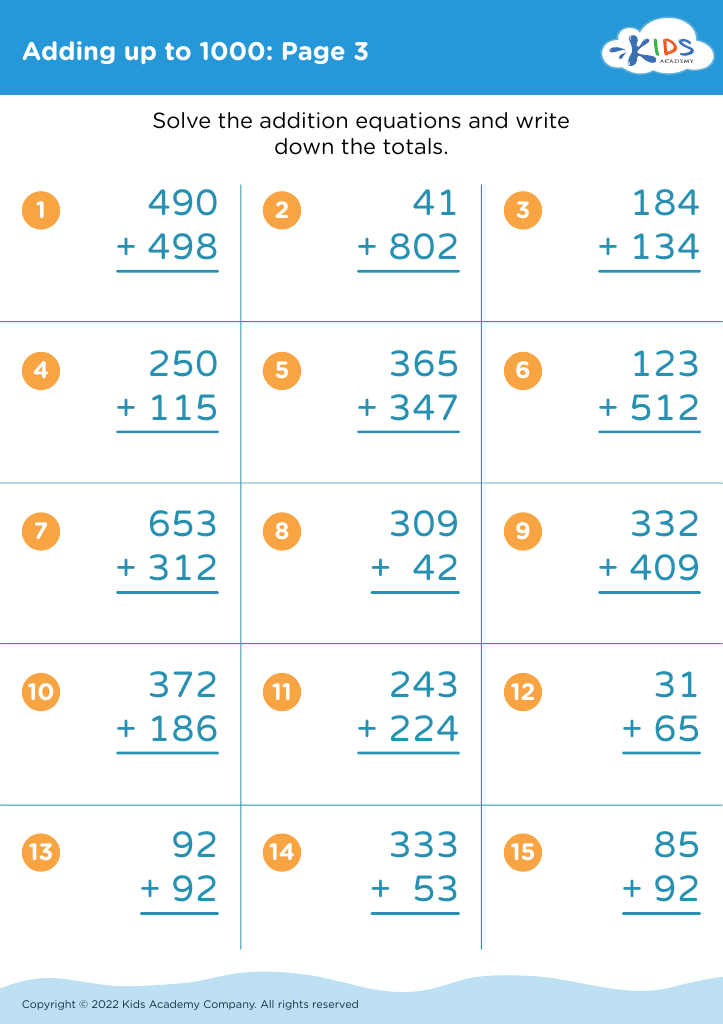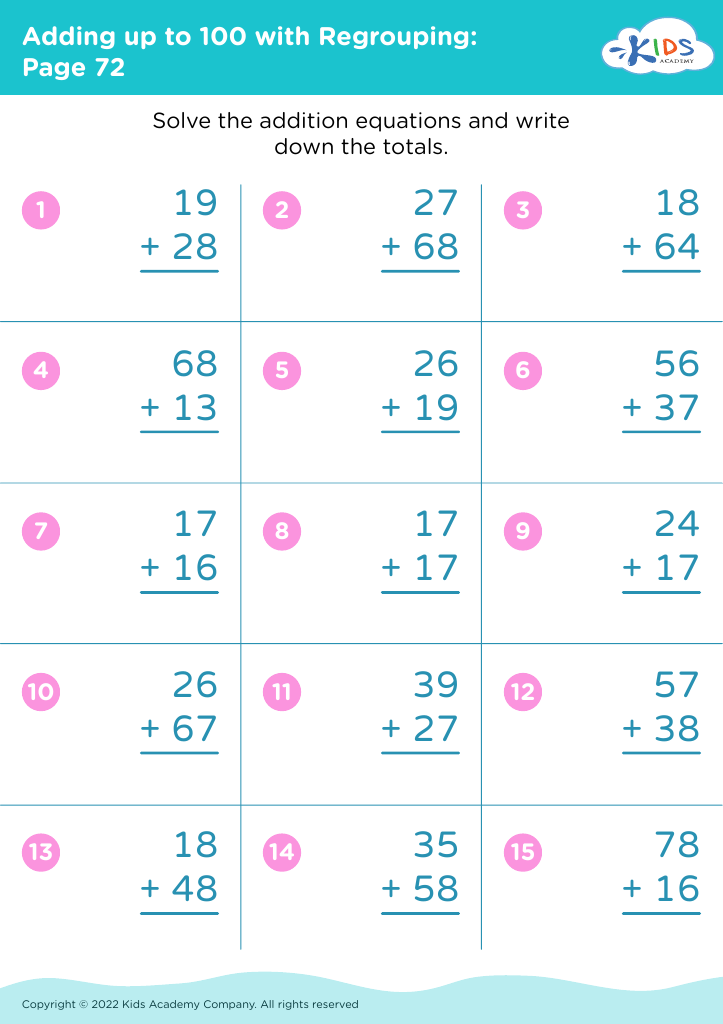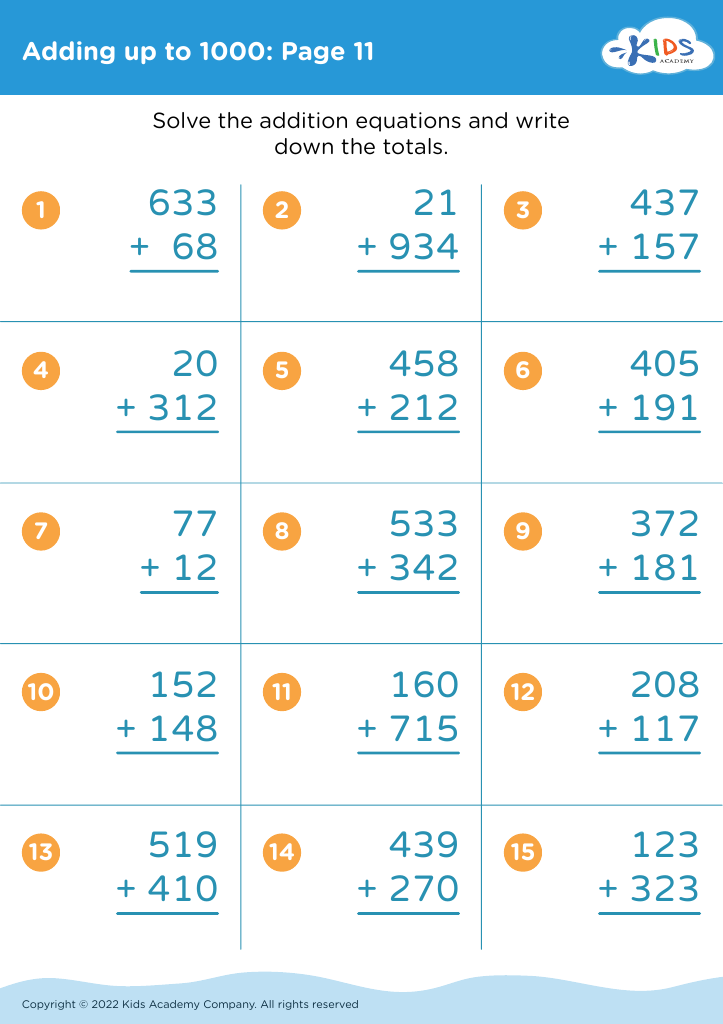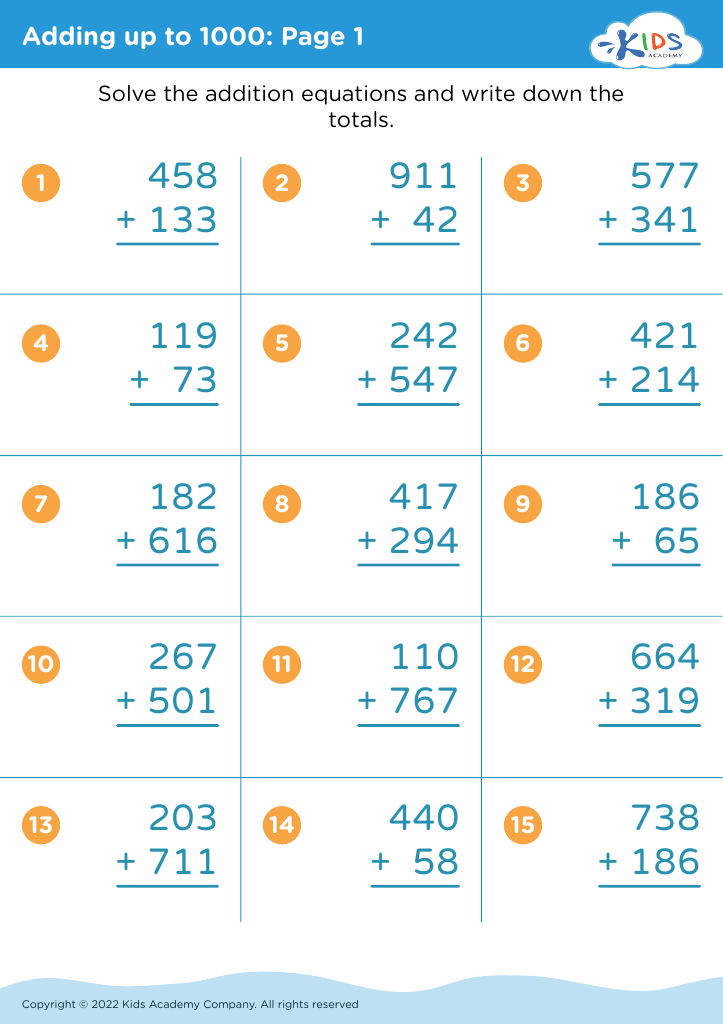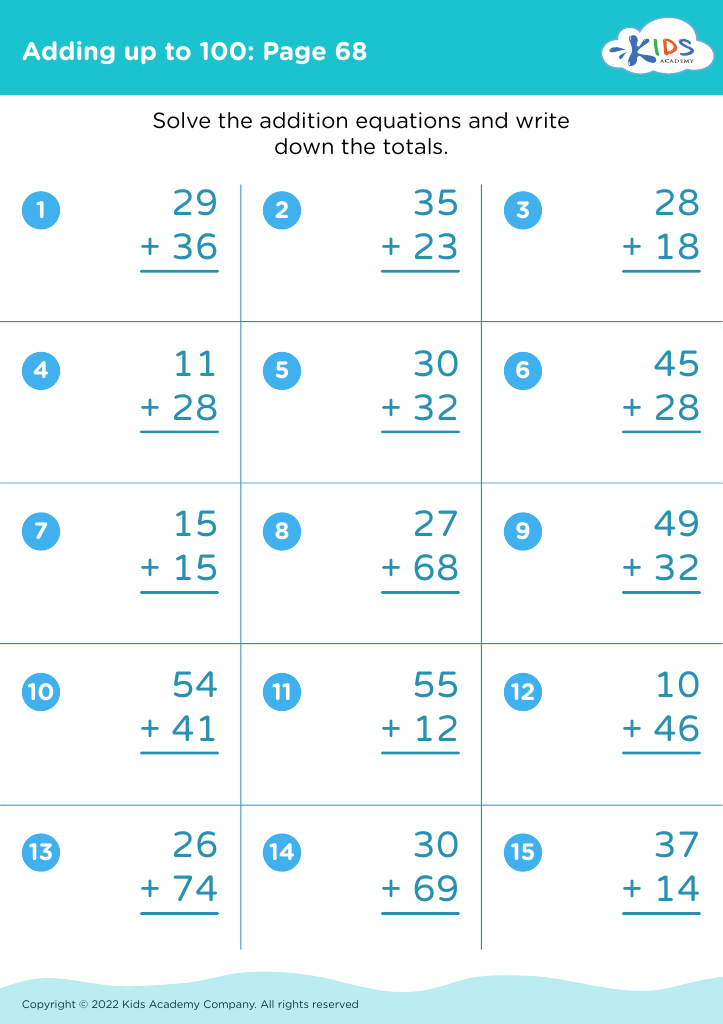Understand multiplication Worksheets for Ages 5-8
6 filtered results
-
From - To
Introduce your child to the world of multiplication with our engaging worksheets designed for ages 5-8! At Kids Academy, we focus on building a strong mathematical foundation through fun and interactive activities. Our worksheets simplify complex concepts, making it easy for young learners to grasp beginners' multiplication. With a variety of colorful exercises, kids will develop essential skills such as number recognition, grouping, and basic multiplication strategies. Start your free trial today and watch your child’s confidence and proficiency in math soar. Perfect for classrooms or at-home learning, our resources make mastering multiplication an enjoyable journey!
Understanding multiplication at an early age (5-8) is crucial for several reasons. Firstly, multiplication is a foundational math skill that children will use throughout their academic careers and everyday lives. It paves the way for more advanced math concepts such as division, fractions, and algebra, building a strong base for future learning.
Integrating multiplication early fosters improved number sense, helping children grasp the relationships between numbers and enhancing their ability to think logically and solve problems. This foundational understanding supports other areas like science and technology, critical for today's increasingly STEM-focused world.
Multiplication also strengthens children's mental arithmetic abilities, boosting their confidence and proficiency in handling numbers. Confidence in math often translates to a positive attitude towards the subject, making children more likely to engage and persist in learning mathematics over the long term.
Moreover, early exposure to multiplication helps develop critical thinking and analytical skills. Activities that involve grouping and repeated addition show them different approaches to a single problem, improving their flexibility in thinking.
Teachers and parents who emphasize multiplication ensure children do not fall behind and face fewer difficulties as the math curriculum becomes more complex. Such foundational skills also foster lifelong learning and problem-solving capabilities, essential beyond the classroom.


